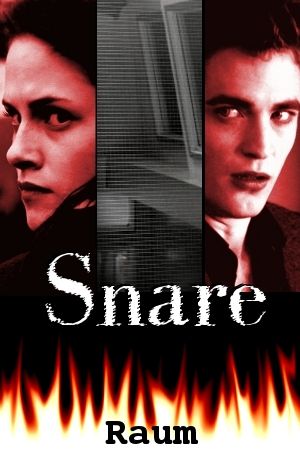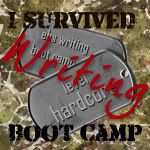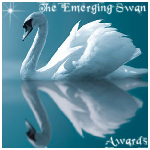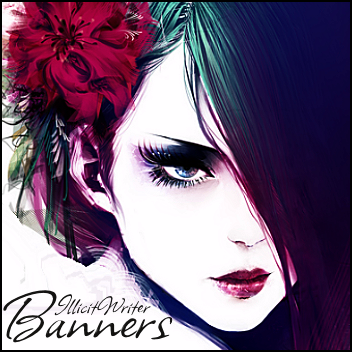 |
| Cecilia Tan |
Today's guest for the Writing Lab is Cecilia Tan.
She is the author of the online serials The Prince's Boy (read online:http://www.circlet.com/?p=322) and Daron's Guitar Chronicles (http://daron.ceciliatan.com/start-here), as well as many books, including The Siren and the Sword (the Magic University series), Mind Games, White Flames, and others. You can find her on Livejournal and Twitter as "ceciliatan", on Facebook as cecilia.tan, and on her blog at http://ceciliatan.com. She also writes fanfic under the name ravenna_c_tan on Livejournal and Dreamwidth.
Many, many thanks to the lovely miaokuancha -- who wrote a lesson about Present tense vs. Past tense in fiction -- who talked to Cecilia Tan about MyReadingLounge's Writing Lab.
The Serial Form and Fanfic WIPs
by Cecilia Tan
Today I am here to write about the relationship between serialized fiction and fanfic WIPs. For those who don't know me, I'm a professional writer who started writing fanfic after I'd been publishing professionally for over a decade. I came to fanfic for fun, for the fandom community of it, for the ability to geek out and play in the world(s) that I was in love with. What I discovered, though, was that not only was fanfic tremendously fun, I could actually use it to improve my own writing. I could experiment, learn, and grow as a writer in a way I couldn't when I was only writing for commercial publication.
One of the joys I discovered was writing in the serial form. Most people assume when you are writing something "long" that you are writing a novel. But does everything have to fit into the novel form?
Modern fiction is dominated by the novel form. All the truly significant literary prizes are awarded for novels, novelists are the best compensated among fiction writers, and when most people think about being a "fiction writer" they are thinking "novelist." We typically read a lot more novels than anything else, and this shapes our expectations as readers and as writers.
However, this dominance comes more from the commercial aspects of selling fiction than from an inherent superiority of the novel over other forms (short story, serial, et cetera). Book publishers have made the novel the dominant form, but this was not always the case. In the days when newspapers and magazine periodicals ruled the roost (because books were expensive to make and own, and newspapers were people's main source of news, with major cities having dozens of daily newspapers being published!) the fiction serial was a favored form of storytelling. Many of the great stories we read today as "novels" were actually serials that were later collected. Think of Alexandre Dumas' books about the Three Musketeers and Charles Dickens.
The serial is different from the novel in much the same way that a television series is different from a movie. Everyone now accepts that a television show can tell a long, overarching story about the characters, but that each episode may only move that overarching plot forward a small bit (if at all) and that where that plot ends up may meander sometimes from where it looked like it would originally go. In television this can, unfortunately, be the product of outside forces, like actors not renewing their contracts and having to be written out of the story, for example.
But in a fiction serial, the author is in control. And at last we have a new medium that is perfect for delivery of fiction serials: the Internet. We also have another emerging form on the Internet that people have embraced: the webcomic. Some webcomics concentrate on a single story or gag each day, while others just post new pages in an ever-growing serial story.
Many writers of fanfic Works In Progress (WIPs) are trying to fit their story into the format of a novel. Your typical commercial novel is 60,000 to 80,000 words long, and has three acts. Act I, the beginning, is about the first 25% of the book. Act 2, the middle, is about 50%, and act 3, the ending, is the final 25%. In the beginning, it's all about introducing new characters, new situations, and new conflicts, and raising questions. In the middle it's all about overcoming increasing obstacles. And in the end it's all about answering all the questions that were raised and resolving the conflicts that were introduced in the beginning. Most Hollywood films follow this exact pattern as well.
But obviously the three-act structure is not the only way to tell a story. Many things that were mediocre movies made great television shows (Buffy the Vampire Slayer, anyone?) and likewise, some great shows made mediocre movies (The X Files).
A serial gives the author room to explore many issues without being on a time clock that says everything has to be resolved by chapter 20. New issues and new characters can be introduced along the way instead of all being thrown at the reader in the very beginning. In fanfic, we may already be familiar with the characters, but perhaps new plot elements or themes are being introduced and explored?
A really good WIP can be addictive. When I find a fanfic writer who is juggling a lot of balls in the air, multiple character arcs perhaps, multiple themes, and keeping them all going and going, I just cannot WAIT for each new installment. And I've had such tremendous fun writing various fanfic WIPs myself over the years, especially from all the comments from readers who are trying to guess what is going to happen next, that I finally thought, hey, why aren't original fic writers doing this, too?
So I wrote an original fic serial called The Prince's Boy, a male/male high fantasy story with a kind of dark sex-magic theme, to see if I could recreate that same kind of excitement and if I could take my time letting the plot unfold at its own pace. It was some of the most fun I've had writing fiction, and I learned a lot. I had the space to explore multiple characters instead of just one "viewpoint" protagonist, which created more for my readers to love, too.
And like with the fanfic WIPs I had done previously, the participation of readers in the ongoing creation of the fic is something that a novel just doesn't have.
The other thing I learned is to trust my subconscious, my muse, if you will. There is some reason why a writer gets the urge to write. It's usually because something deep inside is trying to bubble out.
 Whether what you write is fanfic or original fic, that is still true. There's something inside trying to be expressed. In a serial, I had room to just let that engine run until it came full circle. Every time I had the urge to write, I indulged it, and the end result was wonderful. The Prince's Boy ran for two years, and the end result is close to 200,000 words, which is three times the length of most romance novels. It just would not have fit in a third the space. And many of the WIPs I've followed in my fandoms are the same. Some are now longer than the original source material by a factor of two (and with the Harry Potter books, that is a lot!) and are still going.
Whether what you write is fanfic or original fic, that is still true. There's something inside trying to be expressed. In a serial, I had room to just let that engine run until it came full circle. Every time I had the urge to write, I indulged it, and the end result was wonderful. The Prince's Boy ran for two years, and the end result is close to 200,000 words, which is three times the length of most romance novels. It just would not have fit in a third the space. And many of the WIPs I've followed in my fandoms are the same. Some are now longer than the original source material by a factor of two (and with the Harry Potter books, that is a lot!) and are still going.So the next time you start a WIP, remember you might really be writing something that isn't a novel. It might be a serial. It might be its own form. Where a novel is like a crown set with three jewels, a serial is like a string of pearls, where one after another after another is strung. If each chapter you write seems to be leading you to another and another and another, I would say keep following that trail of breadcrumbs until you find where it leads, even if the path meanders all over the forest in the middle. What you have in the end might be truly beautiful.
Thank you, Cecilia, for this wonderful, inspiring article!As usual, comments are welcome!




























I'm so thrilled to see this up!
ReplyDeleteIn the course of the ponderings that your articles have prompted, I think of another example for the string of pearls type narratives: legend cycles - be they oral tradition or their written versions. Are these not the weavings of entire themes into the culture itself, through not just a highly serialized and tangential narrative, but recursive and alternate stories that all yet somehow belong to the core myth. I have sometimes wondered if fanfiction might not be precisely the modern version of this.
Thank you for your comment, Miaokuancha.
ReplyDeleteAnother link between legend cycles and fanfics might be represented by the opportunity to continue the plots, using the same characters, for many, many new stories!
Oh I love the idea of legend cycles and reinterpretation of stories, like the Greek myths had many different versions--probably as many versions as there were storytellers out there repeating them.
ReplyDeleteHi Cecilia!!
ReplyDeletethank you for your comment!!
I'd think also about "The Neverending Story" by Michael Ende, one of my favorite novels.
- Raum